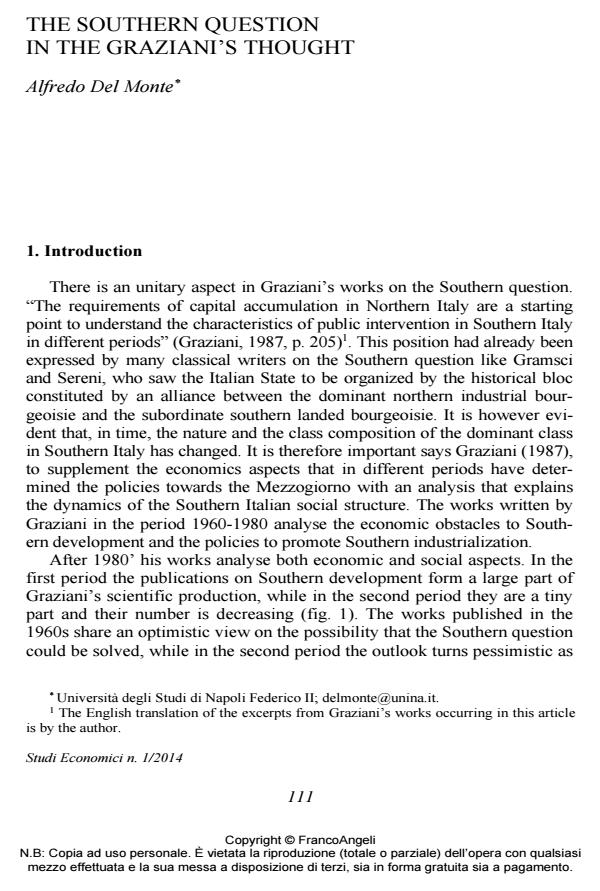The southern question in the Graziani’s thought
Titolo Rivista STUDI ECONOMICI
Autori/Curatori Alfredo Del Monte
Anno di pubblicazione 2015 Fascicolo 2014/112
Lingua Inglese Numero pagine 23 P. 111-133 Dimensione file 293 KB
DOI 10.3280/STE2014-112009
Il DOI è il codice a barre della proprietà intellettuale: per saperne di più
clicca qui
Qui sotto puoi vedere in anteprima la prima pagina di questo articolo.
Se questo articolo ti interessa, lo puoi acquistare (e scaricare in formato pdf) seguendo le facili indicazioni per acquistare il download credit. Acquista Download Credits per scaricare questo Articolo in formato PDF

FrancoAngeli è membro della Publishers International Linking Association, Inc (PILA)associazione indipendente e non profit per facilitare (attraverso i servizi tecnologici implementati da CrossRef.org) l’accesso degli studiosi ai contenuti digitali nelle pubblicazioni professionali e scientifiche
This paper shows that there is a unitary aspects in Graziani’s works on Southern question: the idea that is necessary to supplement the economics aspects that in different period have determined the policies toward Mezzogiorno with an analysis that explains the dynamic of Southern Italian social structure. The conclusion of Graziani is that the dominance in the South of social groups which are not interested in the process of industrialization is the main factor which prevents the Mezzogiorno from making further progress on the way of development. This paper examines also if there is an empirical evidence in the period 1951-2005 to support the Graziani dependent economy model. The paper shows that such evidence exists only from the period 1951-75. The conclusion of the paper is that the approach to Southern question made after 1980, Graziani an heterodox economist relative dominant thought but that his ideas has always aroused lively interest also from people that disagree with him.
Parole chiave:Public policy, Southern question, Dependency.ds: Augusto Graziani, Teaching of Economics
Jel codes:O1, R58
Alfredo Del Monte, The southern question in the Graziani’s thought in "STUDI ECONOMICI " 112/2014, pp 111-133, DOI: 10.3280/STE2014-112009